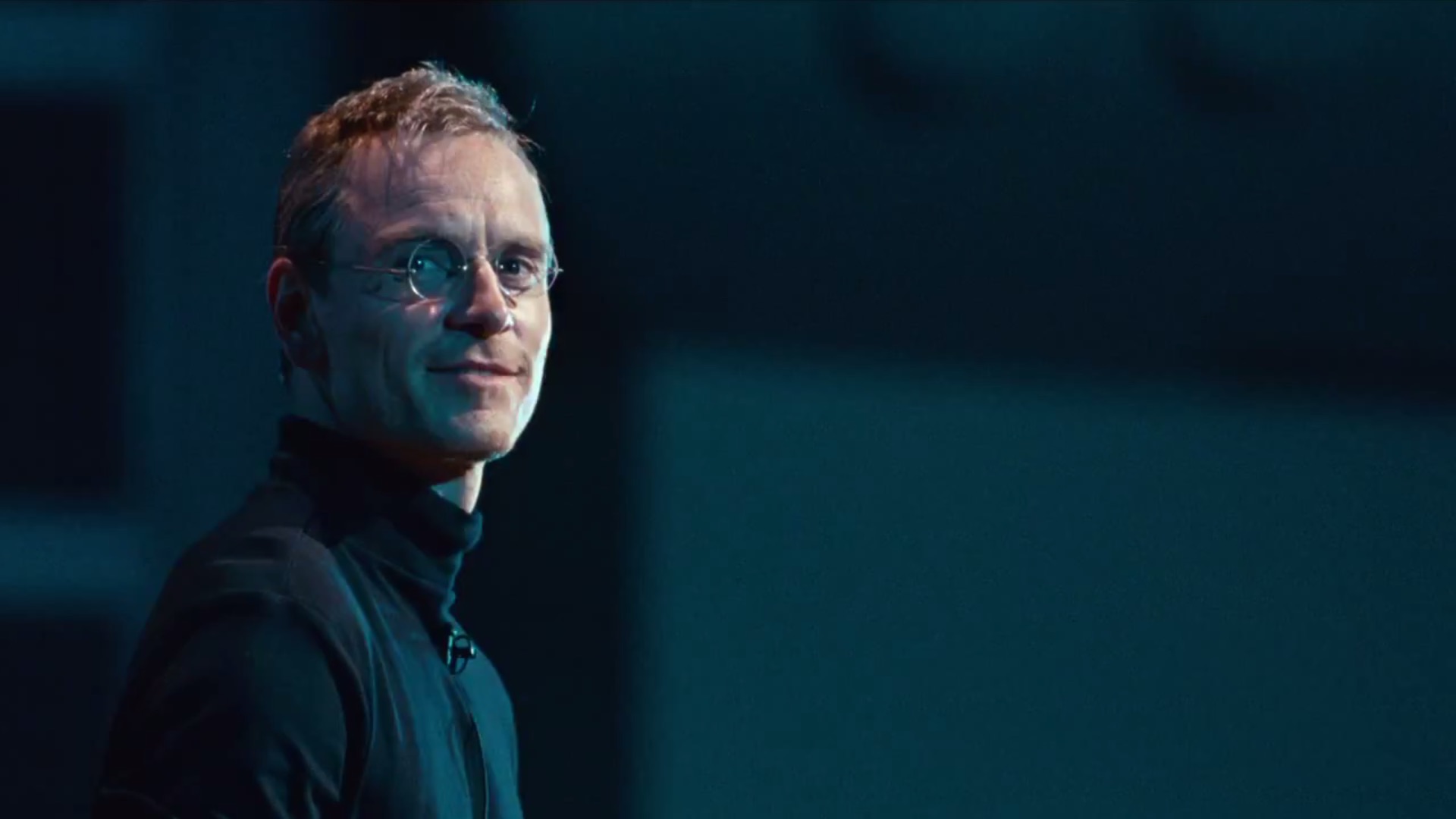Say what you will about Bill Simmons, but the guy knows talent, as he abundantly proved when staffing up Grantland, his ESPN pop-culture-and-sports combo, which has gone far deeper in analysis of screen and sound and society than anyone had a right to expect. It’s been feared that an exodus of gifted people would follow his ugly divorce from the company, and that now seems to be the case. Sad, but even before the industry itself became fragile, the dynamic of the masthead always was. Erase the wrong name and others magically disappear.
Alex Pappademas, one the really perceptive critics there, has written about Aaron Sorkin’s new Steve Jobs dreamscape. An excerpt:
In Steve Jobs, Sorkin takes interactions and confrontations that occurred at different points in Jobs’s life, or not at all, and reimagines them as having taken place backstage in the minutes immediately before Jobs unveiled one of three new products — Apple’s Macintosh in 1984, the NeXT Computer in 1988, and the original Bondi blue iMac G3 in 1998. (Each sequence gets its own distinct look: grainy/nostalgic 16-millimeter for the Mac, sumptuous 35 for the NeXT, warts-and-all digital for the iMac.) The film’s more-than-a-little-bit cockamamy sub-premise is that on each of these crucially important days, Jobs also found himself scheduled for back-to-back come-to-Jesus meetings with people he’d wronged on his way to the top, including Lisa and her mother, Chrisann Brennan (Katherine Waterston); Apple cofounder Steve Wozniak (Seth Rogen, putting deepening wrinkles of hurt in his Fozzie Bear rumble); and the company’s third CEO, John Sculley (Jeff Daniels, perfectly wry and wounded).
Sculley shows up as a slayable father figure/level boss in all three chapters, even though in real life he and Jobs rarely spoke after spring 1985, when Jobs fought Sculley for control of Apple’s board and lost. And while Mac marketing guru Joanna Hoffman (Kate Winslet) did follow Jobs from Apple to NeXT and was famously one of the few people who could stand up to him and live to tell the tale, she’d moved on to a position at General Magic and then to retirement by the time the iMac hit. I’m also going to assume Hoffman was more than the sassy-but-supportive Sorkin work-wife figure this movie makes her out to be. Of course, Sorkin has freely admitted that if any of these scenes actually happened the way he’s written them, it’d be news to him — but when you see the movie, chances are you’ll understand exactly why he played so fast and loose with history. By tossing out the biopic beat sheet and zeroing in on the parts of Jobs’s business that most resembled show business, Sorkin has moved Jobs’s story into his own comfort zone. It’s now a three-act backstage-panic comedy/melodrama about a brilliant, work-fixated white guy whose genius far exceeds his emotional intelligence and the people who can’t help but love him anyway.•
Tags: Aaron Sorkin, Alex Pappademas, Bill Simmons, Steve Jobs

